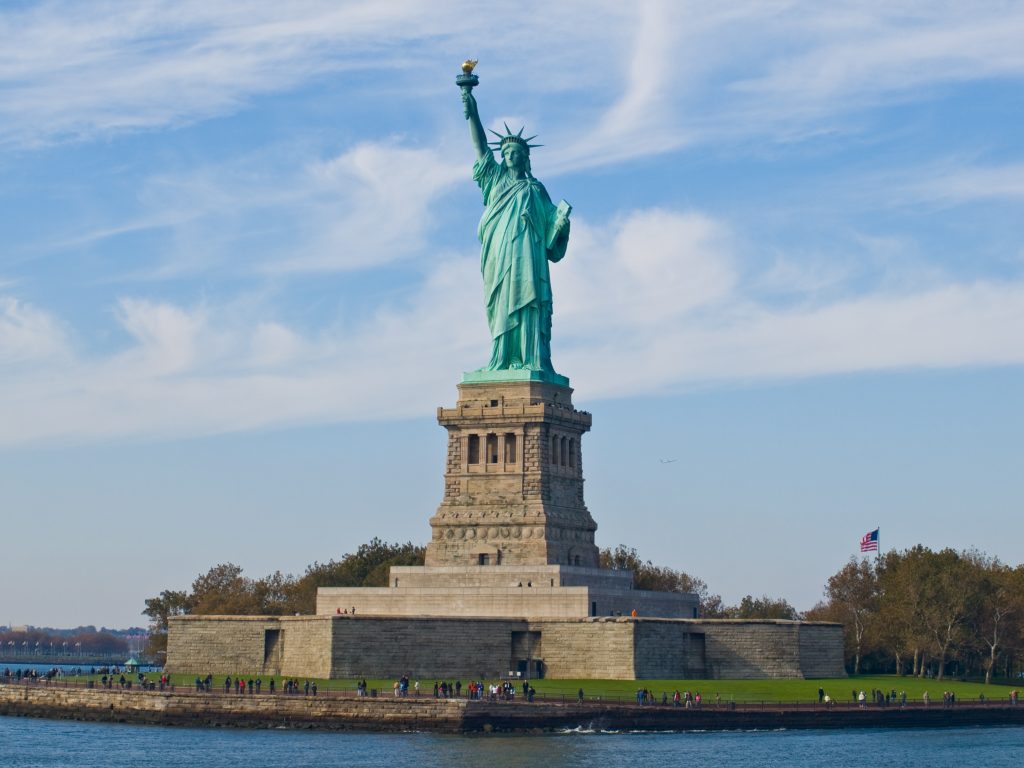Views expressed in opinion columns are the author’s own.
Diamondback opinion editor Max Foley-Keene recently wrote a column titled “Libertarianism and white nationalism actually aren’t that different” — an interesting, but faulty, take.
I acknowledge and denounce the disturbing relationship between some self-described libertarians and the alt-right. However, Foley-Keene’s argument focuses on the relationship between the philosophies of libertarianism and the alt-right. The connection between the two ideologies, he claims, is derived from their shared umbrella ideology of conservatism. On this supposed relationship, he couldn’t be more wrong.
American libertarianism is a consistent application of the precepts of classical liberalism. Its principles can be roughly summarized as support for civil liberties, freedom of enterprise and freedom of action, so long as they are not harming any others.
Why do these conflict so starkly with conservatism? Because these principles, although lauded by conservatives, clash with conservative political commitments.
Let’s take freedom of enterprise, which is often summarized as “laissez-faire,” roughly translating to “let them do.” But contemporary conservatives who tout this 18th-century phrase are actually truncating it. The complete phrase coined by classical liberal economists translates more closely to “let them do and let them pass, the world runs on its own.”
Notice that this classical liberal mantra places freedom of migration as central to its philosophy, setting up immigration as one such situation of a fundamental conservative-libertarian clash.
One may argue that modern libertarians do not promote this principle in practice, but in fact, libertarian thinkers such as Alex Nowrasteh, Michael Huemer and Jason Brennan are key figures in the academic movement supporting open borders.
White nationalism and conservatism, on the other hand, seek to create national uniformity by preventing people of certain origins from entering a country via strictly controlled borders. This is a foundational rift.
And as libertarian F.A. Hayek argues in his essay, Why I Am Not a Conservative, disagreements between libertarian and conservative policies reflect a deeper philosophical divide.
Hayek contends that classical liberals are often diametrically opposed to the traditionalist sentiments of conservatives. Contrary to Foley-Keene’s claims about libertarian support for hierarchy, part of the reason to advocate for free markets is that they often upset natural hierarchies and reduce inequalities.
Libertarians do not always take the current distribution of wealth as given, arguing that it is an unjust result of government privileges granted to politically connected economic actors. Many even oppose government policies such as occupational licensing, intellectual property and zoning regulations that prevent less-established firms from competing with established businesses.
This doesn’t just apply to economic hierarchies. Libertarian academics, including those at the Cato Institute, have also decried institutional racism in the context of government actions and programs, such as mass incarceration and the war on drugs, which they have long argued were designed with racist intentions.
But what about Ron and Rand Paul’s racist statements and sentiments that Foley-Keene rightly points out? Aside from the fact that the Pauls are not exactly paragons of libertarianism, this mode of argument cannot reasonably taint an entire ideology.
Progressive heroes Franklin Roosevelt and Oliver Wendell Holmes supported fascist and eugenic policies. More recently, Bill Clinton pushed policies that ripped thousands of families of color apart through mass incarceration. Does that mean liberalism is inherently racist? Or could it just be that America is a racist country, regardless of the political spectrum? Virtually every American political ideology is tainted with its share of racist baggage.
In Foley-Keene’s final point, he writes, “Libertarianism is infected with the Nietzschean valorization of the will, the domination of obstacles, the celebration of personal ambition. Those impulses — uninterrupted by notions of love or mutual care or social obligation — aren’t unfriendly to nationalism.”
This is like saying progressive celebration of economic equality is uninterrupted by notions of economic efficiency or productivity. Political ideologies held by reasonable people are sets of values that people believe are important to emphasize in governance and do not necessarily reflect a total rejection of all other values.
As a libertarian, I hold personal liberty and individuality as some of my highest values, but this does not mean I’m not concerned about the welfare of the least fortunate, or the values of love, family and community. In fact, it is because I love others that I would like to see them grow based on what matters to them, not what I suspect would be best for society. Major libertarian thinkers are even open to non-paternalistic welfare proposals like a universal basic income to help those unable to help themselves.
Libertarianism is not just borne out of selfishness. It is borne out of the genuine notion that peace, liberty and markets are the best means to alleviate poverty, increase prosperity and create a happier society. That doesn’t sound like white nationalism to me.
Yusuf Mahmood is a rising senior economics and philosophy double major, Academic Programs Chair for Students For Liberty, and Co-President of Young Americans for Liberty.
CORRECTION: Due to an editing error, a previous version of this article incorrectly referred to “Why I Am Not A Conservative” as a book. It is an essay. This article has been updated.



